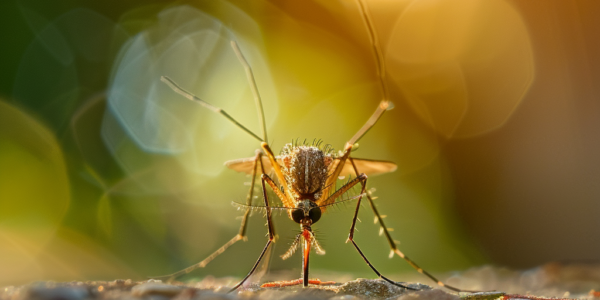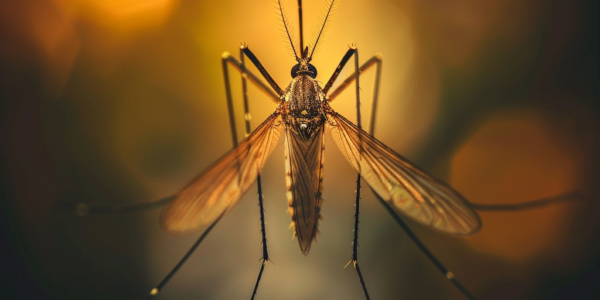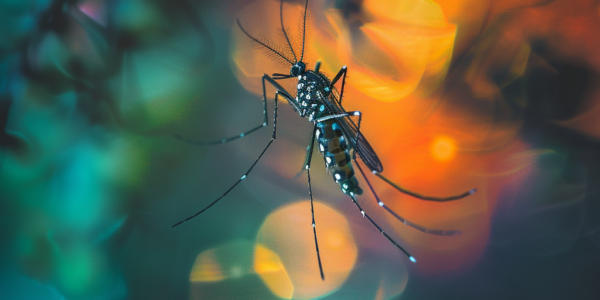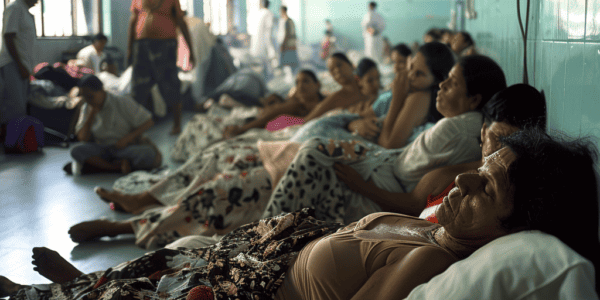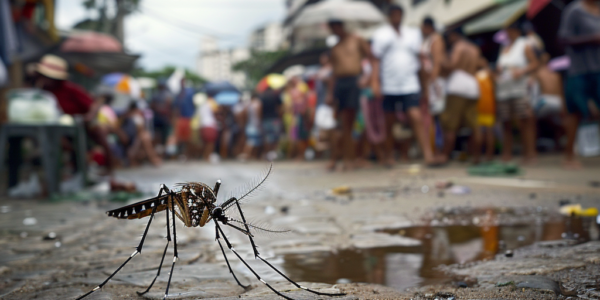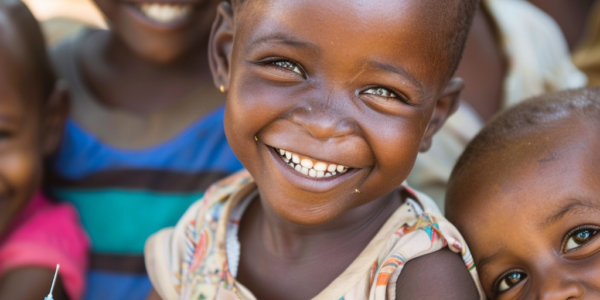Chinese Scientists Discover Gut Bacteria in Mosquitoes to Combat Dengue and Zika
Chinese scientists have discovered a gut bacteria in mosquitoes that could prevent the transmission of dengue and Zika viruses to humans. Published in Science, the research proposes introducing this bacterium into mosquito populations as a natural strategy to combat these diseases. With millions infected by dengue annually, the study highlights the potential of a nature-based approach to address global health threats posed by mosquito-borne viruses.
Murray Valley Encephalitis Detected in Western Australia’s Pilbara Region
Murray Valley encephalitis (MVE) has been detected in the Pilbara region of Western Australia, raising concerns among health authorities. Dr. Andrew Jardine emphasized the importance of taking precautions to reduce the risk of MVE by protecting against mosquito bites. The initial symptoms of MVE include fever, drowsiness, headache, stiff neck, nausea, and dizziness. Health authorities provided a list of preventive measures to minimize the risk of mosquito bites, including avoiding outdoor activities during peak mosquito hours, wearing suitable clothing, using mosquito repellent, ensuring the installation of insect screens, and maintaining short vegetation around homes.
Rising Risk of Dengue Epidemic in Argentina
Argentina is at risk of a dengue epidemic as rising temperatures drive the spread of the virus. With a significant increase in cases and mosquitoes hatching earlier, the country is facing its worst outbreak of dengue fever. The situation has strained hospitals, caused shortages of insect repellent, and raised concerns about the potential for more frequent epidemics. Scientists warn that if the current trend continues, dengue epidemics could occur annually.
Surge in Dengue Infections Raises Concerns in Argentina
A surge in dengue infections in Argentina has caused a significant increase in the number of cases, raising concerns among citizens. The shortage of mosquito repellents has led to discontent and frustration, with citizens questioning the availability of repellents and criticizing the government for the lack of action. Authorities attribute the cause of the dengue epidemic to the explosive increase in the number of aedes aegypti mosquitoes, the carriers of dengue infection, believed to be a result of torrential rains and high temperatures caused by El Niño.
Protecting Yourself from Mosquitos
Learn how to protect your garden from mosquitoes and prevent mosquito-borne diseases. Tips include eliminating standing water, using BTI, gardening with certain flowers, using insect repellants, and using fans to keep mosquitoes away.
Rise in Dengue Fever Cases in Arab Nations
Global cases of dengue fever are on the rise in Arab nations, with the Middle East and North Africa region witnessing an 88% increase in cases from 1990 to 2019. Healthcare professionals in Dubai are noting a surge in local cases, with experts attributing the unusual emergence of the Aedes aegypti mosquito to changing weather patterns or climate change.
UKHSA Warns Travelers to Prioritize Health Amid Rising Mosquito-Borne Infections
UKHSA warns travelers about rising mosquito-borne infections and urges prioritizing health when traveling abroad. Dengue and Malaria cases have spiked, with majority of cases from South and Southeast Asia. Precautions such as using insect repellent, wearing long-sleeved clothing, and taking antimalarial medication are recommended to reduce the risk of contracting these diseases.
Dengue Fever Spreading Across South America
Dengue fever is spreading rapidly in South America, with Brazil alone recording over 1.5 million cases and 390 deaths this year. The disease is overwhelming hospitals and prompting fumigation efforts in major cities. Epidemiologists attribute the rise in cases to global temperature increases, warning that the crisis could spread to the US and Europe as well.
Brazil Faces Biggest-Ever Dengue Outbreak
Brazil is facing its biggest-ever outbreak of dengue fever, with nearly 600,000 cases reported in the first few weeks of 2024 alone. The surge in cases is attributed to the combined impact of global warming and El Niño, creating favorable conditions for the Aedes aegypti mosquito, which spreads the dengue virus. Scientists had previously predicted that climate change would lead to a significant increase in dengue cases worldwide, and this is now becoming a reality. Latin America is witnessing an unprecedented level of dengue cases, with Brazil being particularly hard hit.
New Malaria Vaccine Shows High Efficacy in African Trials
Oxford University and Serum Institute of India’s new malaria vaccine, R21/Matrix-M™, has shown high efficacy in trials in Africa, with over three-fourths of children in the 5–36 months age group protected from the disease during the first year of follow-up. The vaccine, administered in three doses with a booster after 12 months, maintained good efficacy over the following six to 12 months. This marks the second malaria vaccine to achieve WHO pre-qualification, offering hope in the fight against malaria.


